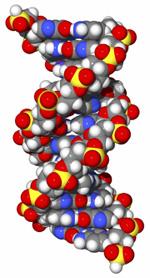
November 15, 2011 — A clinical trial of patients undergoing percutaneous coronary intervention (PCI) for acute coronary syndrome (ACS) and stable angina showed rapid genotyping followed by selective administration of prasugrel to carriers of a common genetic variant resulted in decreased high on-treatment platelet reactivity (platelet non-responder rate) compared to standard therapy.
The investigation also demonstrated that point-of-care genetic testing is clinically feasible and capable of facilitating rapid personalization of antiplatelet therapy. Results from the RAPID GENE trial were presented at the 23rd annual Transcatheter Cardiovascular Therapeutics (TCT) scientific symposium, sponsored by the Cardiovascular Research Foundation.
The RAPID GENE (Reassessment of Anti-Platelet Therapy Using An Individualized Strategy Based on Genetic Evaluation) study utilized a novel point-of-care genetic test to identify carriers of the CYP2C19*2 allele. It then evaluated a pharmacogenetic approach to dual antiplatelet therapy following PCI.
The CYP2C19*2 allele is a common genetic variant found in up to 25 percent of Caucasians and 40 percent of Asians. It is associated with increased rates of major adverse cardiovascular events (MACE) following PCI in individuals receiving clopidogrel. In March 2010, the U.S. Food and Drug Administration (FDA) issued a boxed warning indicating that patients carrying these genetic variants may not receive adequate protection from clopidogrel.
The RAPID GENE investigators hypothesized that a strategy of rapid genotyping followed by selective administration of prasugrel to CYP2C19*2 carriers would decrease the rate of high on-treatment platelet reactivity (platelet non-responders) compared to standard therapy. The primary objective of the study was to evaluate the first point-of-care genetic test in medicine for its accuracy and potential clinical utility.
Existing genetic testing methods are time-consuming, require laboratory expertise and cannot be performed at the clinical bedside. These limitations preclude timely identification of the CYP2C19*2 allele in patients undergoing PCI.
The RAPID GENE study was conducted by a team of investigators at the University of Ottawa Heart Institute. 200 patients undergoing PCI for ACS or stable angina were randomized to a strategy of rapid point-of-care genotyping with selective administration of 10 mg of prasugrel to CYP2C19*2 carriers or to standard therapy with 75 mg of clopidogrel daily.
The study utilized the first point-of-care genetic test in medicine, which overcame many of the previous obstacles that had prevented routine clinical genetic testing. The test featured:
- A saliva (buccal) swab performed by clinical nurses with no prior training in genetic laboratory techniques
- A one-step insertion of the swab into testing machine
- Sixty minutes to identify whether individuals carried the at-risk genetic variant.
The primary endpoint was the proportion of CYP2C19*2 carriers with impaired antiplatelet therapy response (HCPR) in the rapid genotyping arm compared to those in the standard therapy arm after seven days. Secondary endpoints included sensitivity and specificity of the point-of-care test compared to conventional genetic testing; other measures of platelet function among CYP2C19*2 carriers; and the whole cohort by randomization, MACE, and bleeding risk measured by the TIMI scale.
Enrollment of the study was completed in July 2011. In total, 187 patients completed follow-up; 91 patients were in the rapid genotyping group and 96 patients were in the standard therapy group.
The primary endpoint showed the proportion of CYP2C19*2 carriers with high on-treatment platelet reactivity (PRU> 234) was 0 percent in the rapid genotyping group compared with 30.4 percent in the standard therapy group.
Secondary clinical outcomes showed there were no major adverse cardiovascular events in either group at seven and 30 days. There was no significant difference in TIMI major bleeding between the groups, with 2.2 percent in the rapid genotyping group versus 1 percent in the standard therapy group.
The trial demonstrated that point-of-care genetic testing following PCI performed at the bedside by clinical nurses permits accurate identification of CYP2C19*2 carriers. It further showed that point-of-care genetic testing is clinically feasible and facilitates rapid personalization of antiplatelet therapy.
“RAPID GENE is the first study to report the use of a point-of-care genetic test in medicine,” said lead researcher, Derek So, M.D. He is a staff cardiologist at the University of Ottawa Heart Institute and an assistant professor in the department of medicine at the University of Ottawa.
“These results will be integral for the application of future pharmacogenetic strategies in antiplatelet therapy in the context of percutaneous coronary intervention for acute coronary syndrome and stable angina. This represents the validation of the first point-of-care genetic test in clinical medicine. This proof-of-concept study will be applicable to all areas of medicine and will lead to larger scale trials evaluating the role pharmacogenomic treatment strategies,” So said.
The RAPID GENE trial is funded by Spartan Biosciences Inc. So reported no financial relationship with the company.
For more information: www.crf.org


 January 15, 2026
January 15, 2026 









